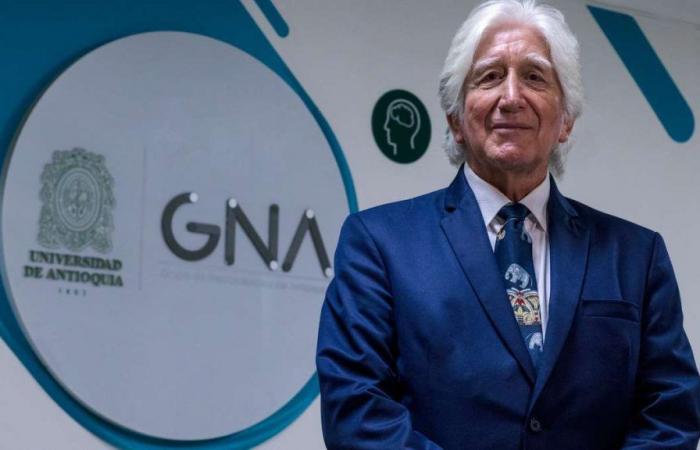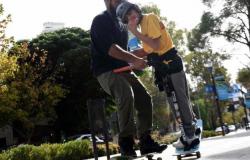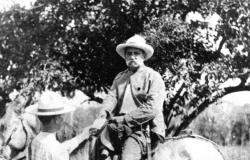Francisco Lopera is the coordinator of the Antioquia Neurosciences Group.
Photo: Courtesy UdeA
On May 15, 2023, Francisco Lopera told El Espectador that with his work team they had made “one of the most important discoveries in the last 40 years. “It is absolutely fundamental in the study of Alzheimer’s.” And he was not wrong, because this discovery, in addition to two other achievements throughout his career as a scientist, has just earned him the most relevant recognition in the field of research into this disease: the Potamkin Prize.
“The Nobel Prize for Alzheimer’s research”, as he is usually known, according to the website of the Potamkin Prize, was awarded this Sunday by the American Academy of Neurology and the American Brain Foundation to Colombian Francisco Lopera, who became the first Latin American to receive the award. ““This recognition is the highest distinction we have received in 40 years of research,” he said during the ceremony, as reported in a statement by the University of Antioquia (UdeA).
11 months ago it was published in the magazine Nature Medicineone of the most prestigious journals in the world of health, the investigation into the second case of a patient with genetic or hereditary Alzheimer’s who had presented cognitive deterioration much later than scientists expected.
Lopera, who is coordinator of the Neurosciences Group at the UdeA (GNA), has studied for years, and together with other researchers, a variant of genetic Alzheimer’s known as the “paisa mutation.” People with this mutation begin to present symptoms of the disease at a very early age, between 40 and 50 years old. The research published in 2023 found the second case in which another genetic mutation would have protected a patient with the “paisa mutation” from developing cognitive impairment at that age, and presenting the first signs of dementia after age 60.
At that time, in El Espectador we published the report A new chapter of Alzheimer’s thanks to the brain of a paisa patient, in which we tell the path of the team of researchers to reach that discovery. Recognizing the large number of researchers who have been part of this work, Lopera received the award as a collective recognition and assured that “For us it is an honor and a pride, as is for the University of Antioquia.”
Francisco Lopera during the ceremony in which he received the award in the United States.
Photo: Courtesy UdeA
In addition to this important research, the American Academy of Neurology took into account two other achievements: the discovery of “the largest population group in the world with a genetic form of hereditary Alzheimer’s and identifying the paisa mutation, which causes this disease” and having a judicious follow this population for 40 years to determine what happens in patients before presenting the first symptoms.
According to the UdeA, the person who nominated Lopera to receive that distinction was Yakeel T. Quiroz, professor at Harvard Medical School, Yakeel T. Quiroz, professor at Harvard Medical School, and who directs the General Hospital of Massachusetts the Familial Dementia Neuroimaging Laboratory and the Multicultural Alzheimer’s Prevention Program.
“The work led by Dr. Lopera with Colombian families with Alzheimer’s disease, for almost 40 years, has contributed significantly to the knowledge that the world has about this disease and neurodegenerative diseases,” Quiroz told the UdeA.
“I am very happy to receive this award and to have had the opportunity to show the American Academy of Neurology, the American Brain Foundation and the Potamkin family the summary of all the research that we have been doing for more than four decades in Antioquia” Lopera said in a statement, ensuring that the GNA’s work remained focused on the search for protective genes that could lead to a cure for Alzheimer’s.






